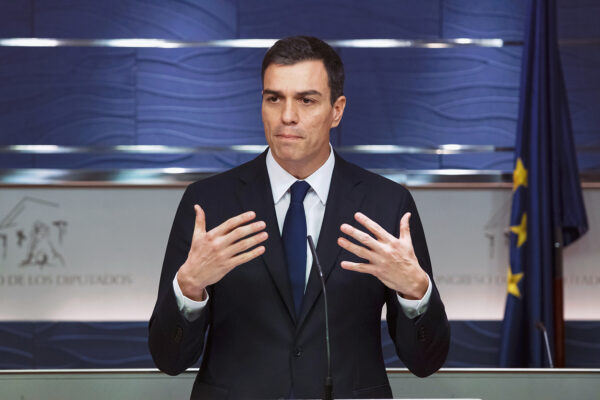
With support from the pro-independence Catalan left weakening, Spanish prime minister Pedro Sánchez is reaching out to the center-right.
The liberal-nationalist Citizens are shifting back to the center under their new leader, Inés Arrimadas, after a disastrous lurch to the right in the last election. They have largely supported Sánchez’ emergency measures to cope with the coronavirus pandemic, which has killed at least 28,000 Spaniards. The party has pledged to vote for three out of four proposed recovery programs, except the one for social policy.
Even the conservative People’s Party, which only a few months ago called Sánchez a “traitor” for doing a deal with Basque and Catalan separatists and then accused him of lying about the true death toll of the pandemic, has suggested it could support some of the policies, which include tax hikes and loans to small businesses.
With tourism, normally one-sixth of the economy, drying up, unemployment is projected to reach 19 percent. (It would be worse without the furloughing system ERTE.) The central bank expects the economy will contract between 9 and 15 percent this year before growing 7-9 percent in 2021.
Catalans wary
Sánchez, a social democrat who rules in a coalition with the far-left Podemos, needs the support of other parties. His government has 155 out of 350 seats in Congress, twenty short of a majority.
Basque and Catalan nationalists previously put him over the top, but the latter are disappointed that talks about transferring more power from Madrid to Barcelona have been put on hold due to the pandemic. (The Basque Nationalist Party is still on board.)
They’re also wary of talk about “improving” health coordination between Spain’s autonomous regions, fearing that this will lead to an erosion of self-rule.
The anti-separatist Citizens, by contrast, support it wholeheartedly. Which only makes the separatists more suspicious.
The Republican Left, the largest party in Catalonia, feels squeezed. On the one hand, Sánchez may be their best hope of getting a better deal for the region. Right-wing parties oppose more autonomy or even want to take some autonomy back. Sánchez at least knows that the status quo is unsustainable with nearly one in two Catalans wanting to breaking away from Spain.
On the other hand, Catalan independence voters are growing restless. The center-right Together for Catalonia, the Republican Left’s ally and rival, argued from the start that Sánchez could not be trusted. It is up in the polls from 14 percent in the last election to 17-21 percent.
Careful
Podemos is down well, from 21 percent support in the April 2019 election to 14 percent in the November election to 11-14 percent in recent surveys.
Pablo Iglesias is unlikely to pull out of the coalition; it is the first time his party is in power. But Sánchez must be careful. The average voter approves of his dealmaking. His left-wing allies are less enthusiastic.
